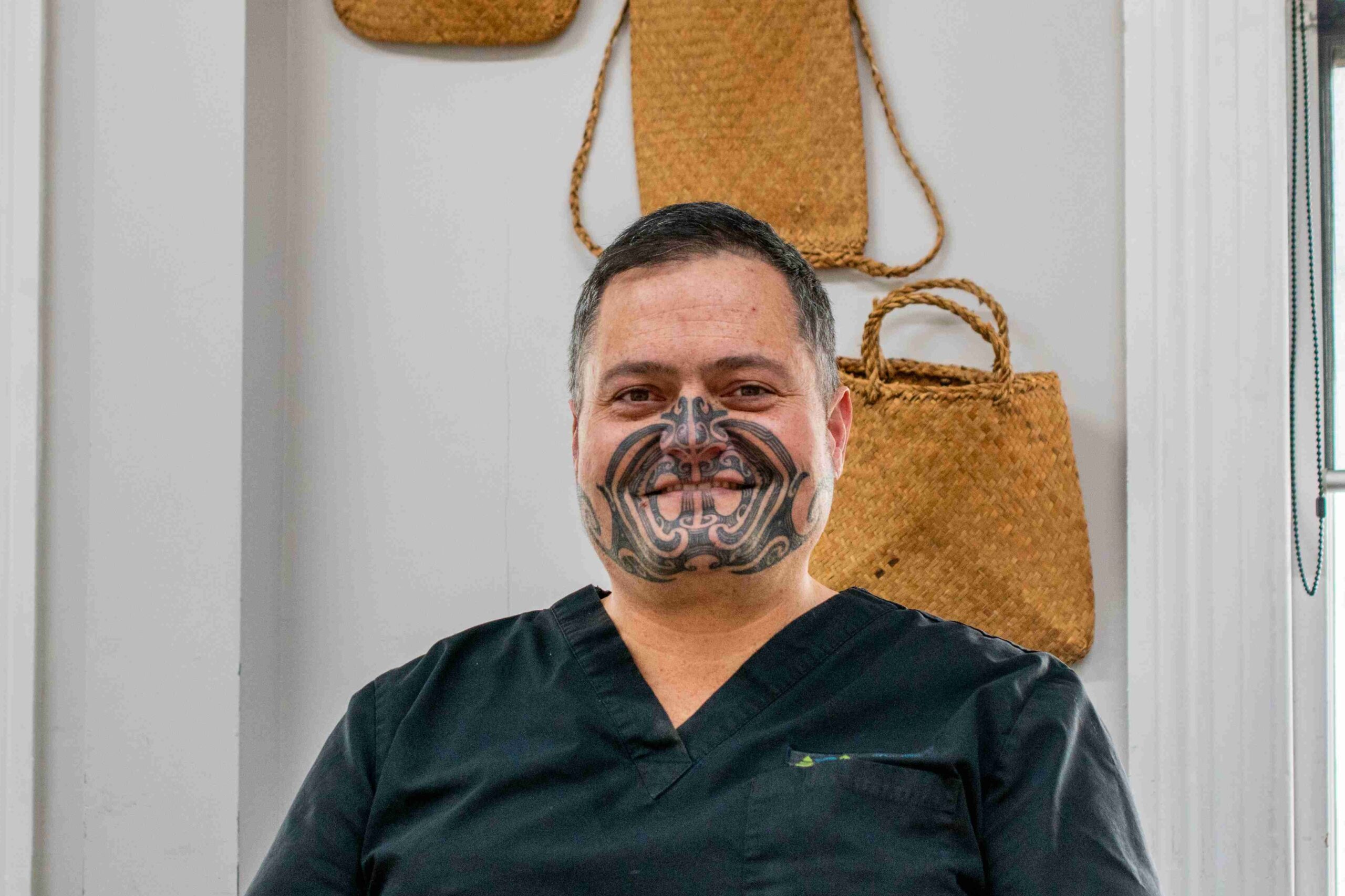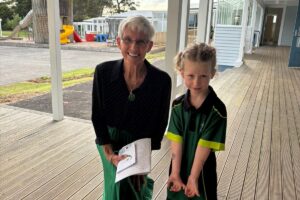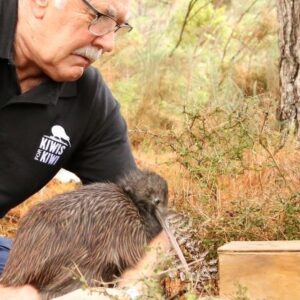Te Korowai Hauora o Hauraki’s clinical director, Dr Martin Mikaere, is not one for accolades. Recently awarded a community services medal from the Royal New Zealand College of General Practitioners (RNZCGP), he hoped it would be just a quick handshake.
“I thought it would be a small thing over dinner,” he laughed.
“Yeah, I was a bit unprepared. I was in a T-shirt and shorts… I had to call my wife to bring over some pants and a shirt.”
Martin said receiving the award, given to GPs who have made outstanding contributions to general practice in their communities, was an honour, if a little embarrassing. The Thames doctor is much happier behind the scenes – seeing patients, overseeing the rohe’s health programmes, and generally doing his best to provide a holistic, community-based approach to wellbeing.
“I’ve always said that GPs are tools, we’re there to be used,” Martin said.
“I don’t let people call me Doctor. I know what my job is, I don’t need to hear it every day. Not everybody likes my style, but that’s okay. I’m just happy to be able to provide the services that I do.”
Martin is the clinical director of Te Korowai Hauora o Hauraki, and also of the Hauraki PHO. The two iwi-centred organisations offer a wide range of medical and wellness services and outreach programmes in the Hauraki-Coromandel region.
His role is to oversee policies and staff, as well as treating patients.
It’s a lot of work. Martin estimates he’s had roughly five weeks of leave in the last five years. But his passion for the people of Pare Hauraki is what has kept him going.
“It’s been a real pleasure looking after the people, especially when I’m from the area. I was born in Thames Hospital, raised in Manaia, Coromandel. I whakapapa back through Ngāti Pukenga and Ngāti Maru,” he said.
“Māori do have some of the worst health rates around. So by us focusing heavily on Māori, it means that all people that are in similar situations will be risen… The stuff that we put our time and effort into is to affect everybody.”
And although the services are Māori-focused, they are also inclusive.
“We don’t keep people out,” Martin said.
“I remember when I first started working here, people would say, ‘oh, I think you’ve got to be a Māori to go to that practice’. I was like, ‘no, you can go. Anybody can go.’”

Martin has seen many challenges in his eight years with the clinic. One of the most difficult times was the Covid-19 pandemic.
“A lot of people were shutting their doors. We kept ours open, and set up mobile swabbing stations everywhere – those three years were pretty busy making sure that the people in Pare Hauraki had everything that they had a right to.”
Te Korowai completely overhauled its practice to ensure patients could still be seen, Martin said; setting up red room/green room spaces, doing virtual and telephone consults, and opening an acute walk-in clinic.
“We had a massive influx of Aucklanders coming down after Covid. I think the most patients I saw in one day was 54,” Martin said.
“There’s a whole lot of balls that are in the air that you have to juggle, and just as soon as you get over one problem, another one presents itself.”
A lack of available locums is another ongoing struggle, Martin said, and some tough calls have had to be made, including the temporary closure of the Te Aroha clinic.
“We rely heavily on locums in order to staff ourselves just because there is a lack of general practitioners throughout the whole of New Zealand,” he said.
“It was really horrible to shut Te Aroha, but we tried pretty valiantly for about 18 months to find somebody to come and work with me. I was having to do [Paeroa and Te Aroha] as well as being on call for Coromandel… I took a lot on during that period.”
Through it all though, Martin has continued to push for more and better health services. This, along with his focus on Māori-centric healthcare, was a large part of the reason for his acknowledgement from RNZCGP.
“Despite the many challenges Te Korowai faces as a rurally isolated region, Dr Mikaere continues to exhibit a refreshing and optimistic view that encourages all health workers of Te Korowai to strive for excellence,” a statement on the RNZCGP website said.
Still, Martin insists the recognition is not solely his.
“You need a team of people,” he said.
“All of the team are fantastic, and they put a lot of energy and time into the patients, they’re all valuable. I probably should tell them that a bit more often, but they are, I appreciate all the work they do.”





